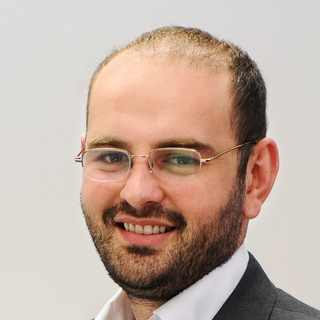Hire Freelance Certified Public Accountants (CPA)
Juba Tsuladze
Juba is the founder of angioClast, a Cambridge-based biotech startup focused on cancer research. Before entrepreneurship, Juba was a seasoned CFO with multi-industry experience and worked on projects, ranging from an equity sale of a $150 million telecom company to a $50 million hotel business turnaround. He joined the Toptal network to resolve diverse FP&A, M&A, buyouts, and strategic analysis challenges.
Show MorePreviously at
Benefica
Robert J. Smith
A seasoned finance professional and CPA, Bob has executed diligence, valuation and M&A mandates while serving in senior roles at Fortune 500 companies (Merrill Lynch, PHH, Discover, BNY Mellon). He is a finance, strategy and operations expert, who employs a collaborative approach that balances customer, regulatory and financial objectives. Bob is freelancing to help growth companies build financial infrastructure and reach their full potential.
Show MorePreviously at
Real Matters (TSE:REAL)
Terry Ward
Terry is the founder of Fulton Advisory, an outsourced CFO & Accounting Services provider for small businesses and growth-stage startups. Terry leads a team of five at Fulton Advisory, where they act as a complete outsourced function for all finance and accounting responsibilities for their clients. They take an operational approach while keeping each founder's specific exit goals in mind in crafting the appropriate financing and reporting strategy.
Show MorePreviously at
Fulton Advisory
Timothy A. Martin
Tim is an experienced CFO and finance professional in all aspects of financial planning, financial analysis, M&A, corporate accounting, and business case development with companies like IBM and Emerson Electric. He has extensive expertise in building dynamic, executable business/financial plans and enjoys freelancing as it allows him to help multiple clients at various stages of development across a wide range of industries.
Show MorePreviously at
IBM
Peter Jacobson
A Harvard grad with an MBA from Stanford, Peter has served as CFO of three successful companies, led several acquisitions, obtained growth capital, led recapitalization efforts, and led a successful exit for the shareholders. He's also raised $500 million+ for clients as a VP at KeyBanc Capital Markets, a commercial and investment bank. Peter enjoys freelancing to help clients with capital raising, M&A, FP&A, and various CFO-related functions.
Show MorePreviously at
BridgeHealth
William M. Wright II, CPA
William is a trusted finance and business leader for small and mid-market companies in a wide array of industries. His success as a CFO includes assisting a motorsport startup raise $50 million in seed funding, assisting $1 – $3 billion financial services, media, and technology entities grow long-term value by conducting M&A due diligence and decision support analysis as well as improving finance operations in numerous SMB organizations.
Show MorePreviously at
W.M. Wright Consulting
Brian Francesangelo
Brian is a CPA and certified financial planner with significant experience serving startups and family-owned businesses to large international corporations. He has expertise in accounting matters, financial planning and analysis, projections, efficient bookkeeping, and helping clients save money. As a CPA with a deep understanding of finances, Brian can add much more value to his clients and look to maximize their financial performance or plan for the future.
Show MorePreviously at
Ernst & Young
Pierre Francois
A strategic finance professional, Pierre has established the reporting, forecasting, internal controls, and ERP of an internet startup growing 500%+. Previously, he led the financial due diligence for several acquisitions, including a $14 billion beverage company and created valuation models of firms in various industries. He leverages his extensive CFO and audit field experience in the US and Europe to advise clients on a wide range of topics.
Show MorePreviously at
Opportunity Network
Neel Augusthy
Neel is a finance leader and change agent with 10+ years of experience and a track record of impact in Fortune 50 companies. He has driven transformations to the tune of $250 million, EBITDA uplift of $100 million+, and sustainable change by managing mandates in multinationals, SMEs, and startups. Neel is adept at navigating across countries, regions, and cultures, and he brings an entrepreneurial and creative mindset, drive, and passion to design and execute win-win solutions for his clients.
Show MorePreviously at
VADN Group
Gavin Doyle
Gavin is a CPA and chartered accountant with over 20 years of experience in finance. Over his career with HBO and PwC, Gavin has developed expertise in accounting, financial modeling, and implementing financial processes to maximize business operations. As a core management team member that launched HBO Max, he played an integral role in expanding its subscriber base and creating policies and processes that maximized HBO's profits. Gavin has joined Toptal to work on challenging projects.
Show MorePreviously at
WarnerMedia
Saadat Ali, CPA, FCA
Saadat is a finance executive with 30 years of enterprise leadership experience at Shell, Johnson Controls, and Schlumberger across six countries and three continents. With deep expertise in FP&A, accounting, business planning and management, auditing, and ERM, Saadat has led major initiatives and won the Shell Global CFO Award and JCI's Merit Award. He adds exceptional value to enterprise and team success through collaborative and decisive leadership.
Show MorePreviously at
Tecon Limited
Discover More Certified Public Accountants (CPA) in the Toptal Network
Start Hiring






























